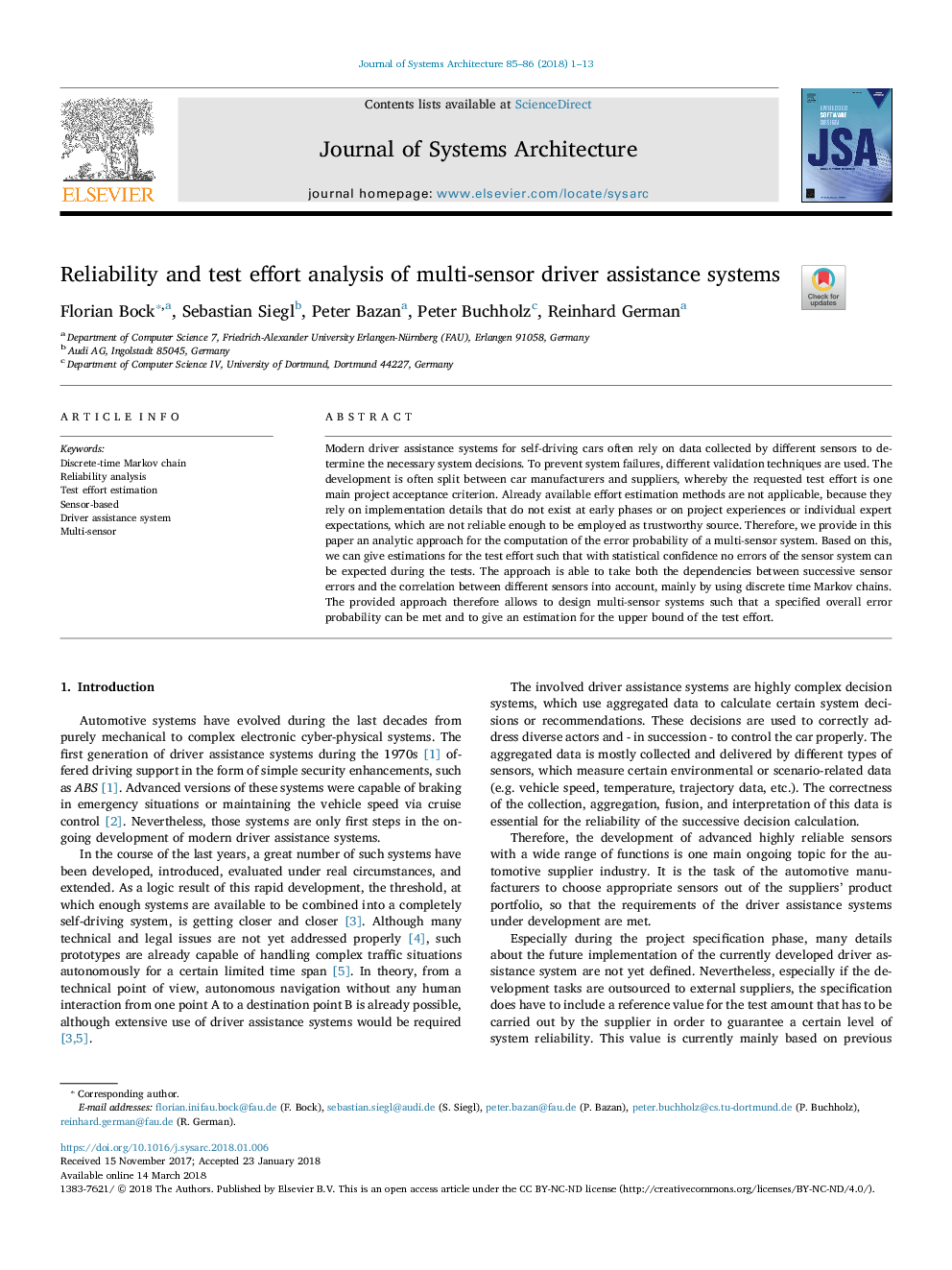ترجمه فارسی عنوان مقاله
قابلیت اطمینان و تحلیل سؤالات آزمون سیستم چندرسانه ای راننده
عنوان انگلیسی
Reliability and test effort analysis of multi-sensor driver assistance systems
| کد مقاله | سال انتشار | تعداد صفحات مقاله انگلیسی |
|---|---|---|
| 83305 | 2018 | 13 صفحه PDF |
منبع

Publisher : Elsevier - Science Direct (الزویر - ساینس دایرکت)
Journal : Journal of Systems Architecture, Volumes 85â86, May 2018, Pages 1-13
ترجمه کلمات کلیدی
زنجیره مارکف زمان گسسته، تحلیل قابلیت اطمینان، ارزیابی تلاش تست، مبتنی بر سنسور، سیستم کمک درایور، چند سنسور،
کلمات کلیدی انگلیسی
Discrete-time Markov chain; Reliability analysis; Test effort estimation; Sensor-based; Driver assistance system; Multi-sensor;
ترجمه چکیده
سیستم های رانندگی مدرن برای ماشین های خود رانندگی اغلب به اطلاعات جمع آوری شده توسط سنسورهای مختلف برای تعیین تصمیمات سیستم نیاز دارند. برای جلوگیری از شکست سیستم، روش های مختلف اعتبار سنجی استفاده می شود. این توسعه اغلب بین تولید کنندگان و تامین کنندگان خودرو تقسیم شده است، بدین ترتیب تلاش آزمایش مورد نظر یکی از معیارهای اصلی پذیرش پروژه است. روش های پیش بینی موجود در تلاش قابل استفاده نیستند، زیرا آنها به جزئیات پیاده سازی که در مراحل اولیه یا تجربیات پروژه یا انتظارات فردی وجود ندارد و به اندازه قابل اعتماد بودن به عنوان منبع قابل اعتماد استفاده نمی شود، تکیه می کنند. بنابراین، در این مقاله یک رویکرد تحلیلی برای محاسبه احتمال خطای سیستم چند سنسور ارائه می کنیم. بر اساس این، ما می توانیم برآورد هایی را برای تلاش آزمون انجام دهیم به طوری که با اطمینان آماری خطاهای سیستم سنسور در طول آزمون ها انتظار نداشته باشند. رویکرد قادر است هر دو وابستگی بین اشتباهات حسگر پیوندی و همبستگی بین سنسورهای مختلف را به حساب آورد، عمدتا با استفاده از زنجیره های مارکوف زمان گسسته. بنابراین رویکرد ارائه شده امکان طراحی سیستم های چند سنسور را فراهم می کند به طوری که احتمال خطای مشخص شده کلی را می توان برآورده کرد و برآوردی برای حد بالایی تلاش تست را ارائه می دهد.

